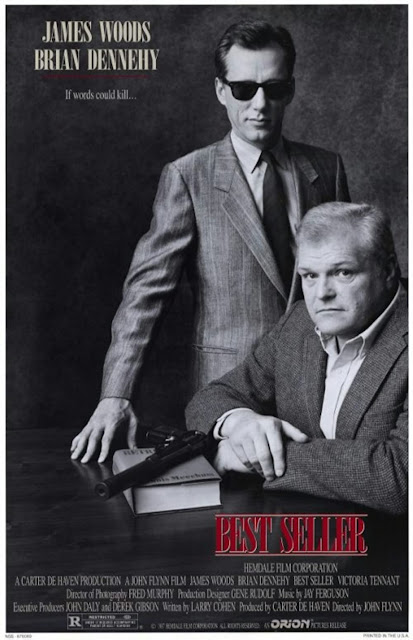I watched The Terminator when I was nine years old.
It has left an impact on me and my taste in movies that has stuck with me to this day. James Cameron was the first filmmaker I knew the name of and was a fan of.
I would watch the making of documentaries of the first two Terminator movies on repeat, and I printed off the original treatments and scripts to read.
They inspired me to become a screenwriter.
Like all movies that you binge in childhood, The Terminator has taken up such a place in my subconscious that I do not feel the need to revisit it.
My local Arthouse was playing a double bill of James Cameron’s Terminator entries, and it felt like the right context to revisit one of my favourite movies.
The Terminator remains my personal favourite of the series.
T2 is great, but there is something so compelling about the unrelenting grimness and momentum of the 1984 movie.
It has a tone and look that I am always looking out for.
A sense of urban menace, of danger that can spring out of nowhere and destroy whatever feels ordinary or unassuming about everyday life.
None of Cameron’s later movies have captured that tone.
The closest thing I can think of is John Carpenter, although there is a muscularity and berserker intensity to Cameron’s vision that Carpenter’s movies do not have.
While I enjoy Cameron’s other works, most of his filmography is based on an abundance of resources.
Cameron knows how to put money on the screen, but The Terminator’s lack of budget gives the movie a bluntness and ferocity that his later movies do not have.
Every scene is a testament to the filmmakers’ savvy in maximizing what they have - every frame is packed with detail.
The sound design is loud and intricate.
There are lots of interesting compositions recalling the depth of comic book frames.
There are touches of realism which create a more immersive and visceral experience - when I last watched Avatar, I was struck by Cameron’s avoidance of the omniscient virtual camera.
During one of Kyle’s future war flashbacks, there’s a quick cutaway to a handheld camera peering up through some wreckage at a hunter-killer. Cut into the action, it amps up the verisimilitude of the future war, and the threat of the HK models.
That sense of specificity extends to the characters.
On this viewing, I was struck by the blunt, almost two-dimensional quality to the characterisation of the central couple.
While her performance in fhe sequel is more iconic, Linda Hamilton is good, particularly in the early scenes as she begins to realise she is in danger.
As her protector, Michael Beihn is so committed to conveying Reese’s sense of focus and repression - there is no swagger or attempt at humour.
While handling the action with ease, he suggests innocence and naïveté to the soldier.
He is in a world he has never experienced, but is also in a situation where he is offered a real chance to rest and reflect.
Paul Winfield and Lance Henrikson are great as the cops on the case - they have a sense of history and naturalism that gives the world a sense of weight.
He only appears briefly, but Earl Boehn emits nuclear levels of odious-ness and condescension as shrink Dr. Silberman.
But one cannot write about The Terminator without rhapsodising its star.
Schwarzenegger’s lack of affect is key. Other actors have played different models of Cameron’s killing machines, but aside from Robert Patrick, none have been able to touch him.
Even Schwarzenegger himself would try to give the Terminator a sense of humour and awareness.
Stripping out any emotional awareness or reactions, Schwarzenegger’s performance works precisely because it inverts what one would expect from a “good” performance.
He would develop his skills and become more comfortable in front of the camera
But never again would he embody the pure, inhuman menace he brings to his initial performance as the Terminator.




